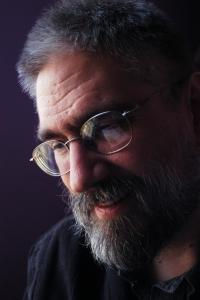Was Augustine a Mystic?
In response to my list of 111 mystics, the Grateful Heretic (aka Grateful Bear) writes:
I don't see how Augustine can be defined as a mystic. A dualist, the inventor of "original sin," one who brought Manicheanism into mainstream Christian theology, one who made Christianity even more body-negative and sex-negative than it already was - those definitions of Augustine I can see. But mystic???
Several random thoughts in response to this...
- No less an authority than Evelyn Underhill considered Augustine a mystic. She wrote, "The influence of Plotinus upon later Christian mysticism was enormous though indirect... St. Augustine (A.D. 354-430) and Dionysius the Areopagite (writing between 475 and 525) are among his spiritual children; and it is mainly through them that his doctrine reached the mediæval world." (Mysticism, page 456).
- Underhill's argument is basically that the pagan philosopher Plotinus, and his two Christian followers Pseudo-Dionysius and Augustine, are essentially the three-legged stool upon which Christian mysticism rests, at least from the sixth century onward. Of those three, Augustine is the only westerner, so his importance to the development of western Christian mysticism cannot be overemphasized.
- The Oxford Dictionary of the Christian Church notes, "Without St. Augustine's massive intellect and deep spiritual perception Western theology would never have taken the shape in which it is familiar to us." (page 110; my italics).
- Although Bernard McGinn notes in The Foundations of Mysticism that scholars have debated whether or not Augustine may properly be called a mystic at least since 1863, he notes that most of those who have denied Augustine as a mystic generally do so out of a narrow definition of mysticism. McGinn himself lauds Augustine as "the founding father" of western mysticism, while other scholars of mysticism including Dom Cuthbert Butler, Steven Fanning, and Louis Bouyer, all speak of Augustine's mysticism (Butler called Augustine "the Prince of Mystics"). Indeed, Butler's classic book Western Mysticism carries this subtitle: "The Teaching of Augustine, Gregory and Bernard on Contemplation and the Contemplative Life."
- Even for those who do discount Augustine as a mystic, I should point out that he is hardly the only figure in my list of 111 whose mysticism is contested.
- While as of this writing I have only read one biography of Augustine and have only read one text (the Confessions), this limited knowledge has already convinced me that he qualifies as a mystic, or at least as a contemplative. The Confessions include passages of tremendous spiritual beauty and eloquence that I believe could only have been written out of firsthand experience.
- Finally, I think we need to be careful about creating theological or spiritual litmus tests by which we decide who is or is not a mystic. I have my arguments with Augustinian theology, but he is not the only mystic on my reading list with whom I hold theological disagreements. Part of my understanding of the splendid diversity of catholic experience is that I do not need to see eye to eye with every theologian (or mystic) in order to appreciate, and find nurturance in, his or her work. If I refused to read every mystic with whom I had "issues," I'd end up with a short reading list indeed!


0 Comments:
Post a Comment
<< Home